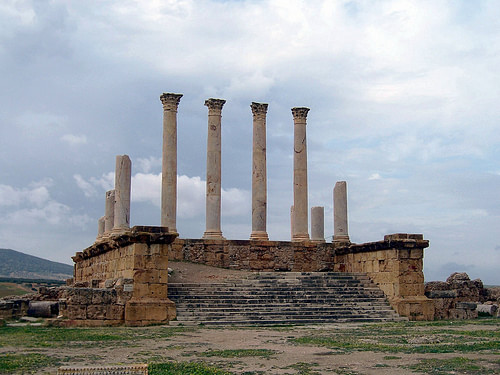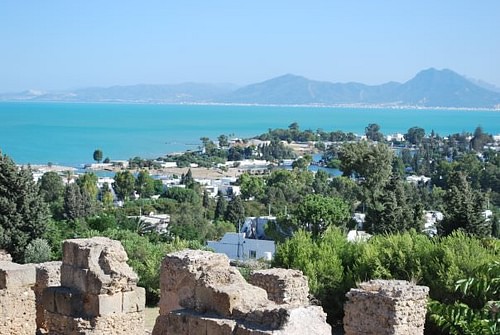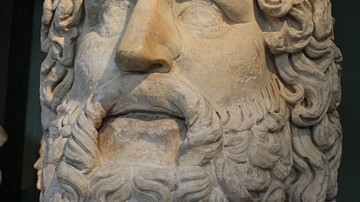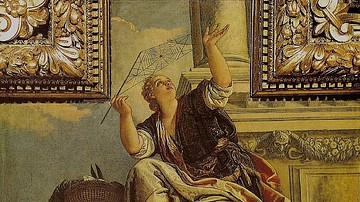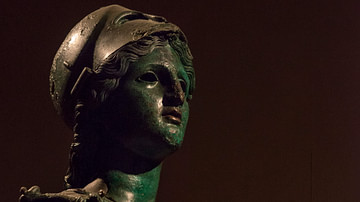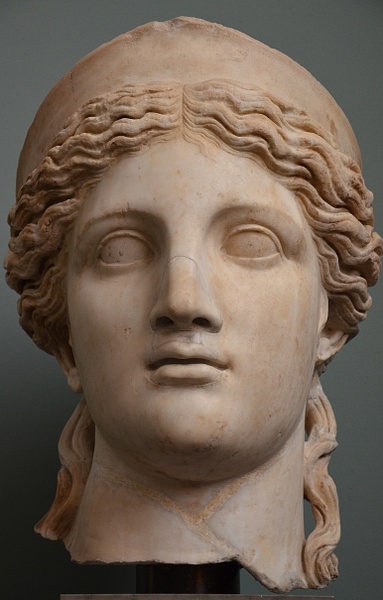
Juno was the Roman goddess who protected the nation as a whole but also kept special watch over all aspects of women's lives. She is often thought of as the Roman version of the Greek goddess of love and marriage, Hera. Juno was the wife and sister of Jupiter, the chief Roman god, and the two of them were worshipped along with the goddess Minerva on the Quirinal in Rome.
Historical Introduction
After a long series of wars with Macedonia, the Roman army conquered the Greek peninsula, and as a consequence, Hellenic culture — art, literature, and philosophy — infiltrated much of Roman life. This infiltration included Roman religion. While their names did not change, the Roman gods began to become more closely associated with their Greek counterparts: Venus became more like Aphrodite, Pluto became Hades, Neptune became Poseidon, and lastly, Jupiter became Zeus. The myths and legends of Roman mythology gradually grew distorted, and many Roman gods began to lose their identity and their individuality. However, one soon forgets that the Roman gods existed long before the arrival of the Greeks, before they lost their uniqueness. And this loss can best seen with Jupiter's wife and sister, Juno, who is not to be confused with her Greek counterpart Hera. In every aspect, Juno was a goddess in her own right.
Juno's Origins & Roles
Although her exact origin is unknown, Juno was one of the oldest of the Roman deities, that is, one of the three original gods — Jupiter, Juno, and Minerva — honored on the Quirinal (later on the Capitoline). A great temple was built by the Etruscan Lucius Tarquinus Pricus to pay homage to the three who were closely associated with the Etruscan trinity: Tini, Uni, and Menura. Some ancient authors claim Juno arrived in Rome in the fifth century BCE from the Etruscan town of Veii north of Rome as Juno Regina, a word meaning queen. She received a temple on the Aventine Hill and served as a civic deity, the protector of the state.
Among other identities, she was known to many as Juno Sospita, the chief deity of Lanuvium, a city located in Latium southeast of Rome. She was the protector of one in confinement, often pictured wearing a goatskin, carrying a spear and shield. She was Juno Lucina, a word meaning light, the goddess of childbirth. No offering could be made at her temple unless all knots were untied because the presence of a belt could hinder the delivery of the woman's child. Lastly, she was Juno Moneta, the moon goddess, who was a personage unique to Rome.
By whatever name she was known, Juno presided over every aspect of a woman's life. She was the protector of legally married women. To others she was the goddess who made people remember, the goddess who alerted people. Her sacred geese were kept on the Capitoline and a legend is told that they gave warning to the Roman military under the leadership of Manlius Capitolinus when the invading Gauls tried to take Rome in 390 BCE. Eventually, she would have several sanctuaries constructed on her behalf; however, her primary temple or citadel was built on the Arx, the northern part of Capitoline Hill. This sanctuary was located next to the Roman mint; the word money comes from her name, Moneta.
The Matronalia
Like many gods or goddesses, she had her own festival, on March 1, called the Matronalia, which was a time of renewal and the awakening of nature. It was a day when husbands were expected to give presents to their wives. The day was supposedly in celebration of the birthday of her son Mars, the god of war. Strange as it may be, Jupiter was not Mars's father; it was instead a magical flower. Some authors claim the festival actually celebrated the anniversary of the end of the Roman-Sabine War and honored the role women played. After the Sabine women had been kidnapped by Romulus, war began but the women restored harmony when they threw themselves between the warring factions.
Juno & Carthage
According to legend, there was a connection between Juno and the city of Carthage where she was identified with the goddess Tanit. And, according to the Roman poet Virgil, the author of The Aeneid, Juno had another connection to the city by playing a major role in the founding of Rome or, more precisely, a role in the delay of the founding of the city. The story of Aeneas and his destiny to found the city is another example of the close connection between the Greek and Roman myths. Although Virgil used Juno as the story's antagonist (he was, of course, Roman), the name of Hera could just as easily be substituted. According to Virgil, there was little love between Aeneas, the story's Trojan hero, and the Roman goddess. Juno loved the city of Carthage and, according to prophecy, her beloved city would one day be destroyed by Rome, a city to be founded by Aeneas. Virgil wrote, “This town, they say, was Juno's favourite dwelling, preferred to all lands … here were her arms, her chariot … she cherished the aim that this should be, if fate allowed, the metropolis of all nations.” In Juno's mind if one stops Aeneas then the city of Rome will never be established — Carthage would achieve its destiny and control the Mediterranean. Virgil questioned the “brooding anger of Juno.” He asked, “Where lay the cause? How was her godhead injured? What grievance made the queen of heaven so harry a man renowned for piety … such a cycle of calamity? Can a divine being be so persevering in anger?” So, Juno loved Carthage and didn't want it to be destroyed by a future Rome. There was, however, a second reason for her anger: the fact that the Trojan prince Paris believed Helen to be more beautiful, and Juno's beauty was “scorned.”
So, by Juno's design, Aeneas and his men landed at Carthage where the Queen Dido fell in love with Aeneas and begged him to remain; however, the Trojan warrior's mother, Venus, had other plans. Juno said, “Let Dido slave for a Trojan husband, and let the Tyrians pass into your hand as her dowry.” The goddess Venus was aware “that this was double-talk by which Juno aimed at basing the future Italian empire ….” The feud escalated between the two goddesses. Luckily for Rome, but unluckily for Queen Dido, Aeneas was reminded of his destiny by the god Mercury. He left Carthage and sailed to the island of Sicily, leaving poor Dido in grief and eventually to commit suicide. Juno made further attempts to stop Aeneas — on Sicily the Trojan women were persuaded to burn the boats. Next, a storm at sea, created by Juno, failed when Neptune interfered, not for the love of Aeneas, but owing to his irritation at Juno's interference in his domain. According to Virgil, “Juno's spell was broken,” and the men safely landed on Italian soil. The rest, of course, falls into the realm of the myth of the founding of Rome and the birth of Romulus and Remus.
After the arrival of Greek culture, the mythology of Roman religion and the identities of its gods become muddled. Stories about the gods, whether Roman or Greek, become intermixed. Juno, despite a close association with the Greek Hera, was, in her own right, an important god. She was the protector of women, the wife (and sister) of the all-powerful Jupiter. She was the mother of the war god Mars. Gradually, however, the entire mythology surrounding the gods — Jupiter, Juno, Neptune and all the rest — disappeared with the emergence of Christianity. Juno's importance and relevance, however, will live as long as people read The Aeneid or tell stories of the great, ancient gods.

